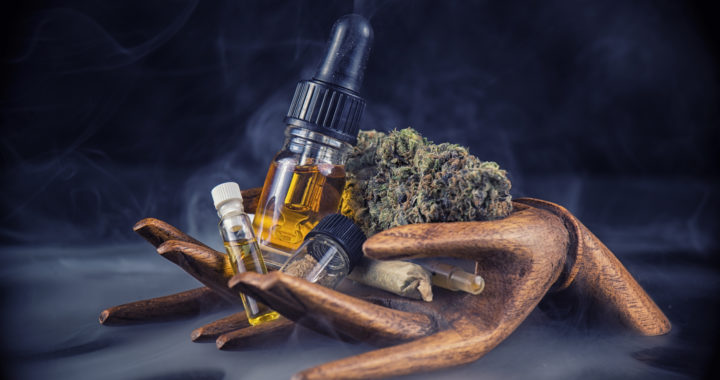Arizona has implemented new cannabis testing rules that take effect on November 1, 2020 requiring the testing of cannabis and cannabis products for potency and a wide range of contaminants. Though many companies already utilize some form of cannabis testing, this could be a big, and costly, change for many.
The state created an advisory council to determine what cannabis testing must be done and the levels of contaminants that are considered safe. Their findings can be reviewed here. But we have listed them below as well.
Microbial Contamination
The final recommendations of the Council related to microbial contaminants are:
- All final products must be tested for E. coli prior to sale.
- Products testing ≤100 CFU/g pass.
- Products testing >100 CFU/g must be remediated or reprocessed as applicable and retested prior to sale.
- All final products must be tested for Salmonella. Samples with detectable Salmonella will fail and must be destroyed – no remediation possible.
- All inhaled products must either be:
- Tested for Aspergillus flavus, fumigatus, niger, and terreus using molecular methods (PCR, qPCR, DNA microarrays, sequencing). Products ≤1 CFU pass and no further testing is required. If the result is >1 CFU, the product must be tested for mycotoxins using HPLC, ELISA, or an in-house developed method that is validated by AOAC Appendix J or K, as relevant, or other federal or international standards. Products testing ≥20µg/kg (ppm) mycotoxins fail and cannot be remediated.
OR
- Tested for mycotoxins using HPLC, ELISA, or an in-house developed method that is validated by AOAC Appendix J or K, as relevant, or other federal or international standards. Products testing ≥20µg/kg (ppm) mycotoxins fail and cannot be remediated.
- Microbial testing should be conducted using the Bacteriological Analytical Manual (FDA 2013a) and validated by AOAC Appendix J or K, as relevant, or other federal or international standards that meet the criteria
Heavy Metals
The final recommendations of the Council related to heavy metals are:
- Any edible or infused product made from concentrate that has previously passed safety testing is exempt from final testing for solvents, heavy metals, pesticides, fungicides, and growth regulators.
- All final products must be tested for heavy metals as listed below. Products at or below the values listed in the table may be sold.
- Heavy metals testing can be conducted using any national, international, or in-house developed method that is validated by AOAC Appendix K or other federal or international standards that meet the method criteria from EPA methods
Pesticides, Herbicides, Fungicides, Growth Regulators
The final recommendations of the Council related to pesticides, herbicides, fungicides, and growth regulators are:
- Any edible or infused product made from concentrate that has previously passed safety testing is exempt from final testing for solvents, heavy metals, pesticides, fungicides, and growth regulators.
- All final products must be tested for pesticides, fungicides, and growth regulators listed in Table 2 within the Oregon Health Authority’s Technical Report (OHA 8964) .
Products at or below the values listed in the table may be sold.
- Pesticide, fungicide, herbicide, and growth regulator testing can be conducted using any national, international, or in-house developed method that is validated by AOAC Appendix K or other federal or international standards that meet the method criteria from EPA methods.
Residual Solvents
The final recommendations of the Council related to residual solvents are:
- Any edible or infused product made from concentrate that has previously passed safety testing is exempt from final testing for solvents, heavy metals, pesticides, fungicides, and growth regulators.
- All final extracted products must be tested for residual solvents referenced below.
Products at or below the values listed in the table may be sold.
- Residual solvent testing should be conducted using any EPA, AOAC, or in-house developed method that is validated by AOAC Appendix K or other federal or international standards that meet the EPA criteria.
Potency
The final recommendations of the Council related to potency are:
- All products must be tested for THC-A, Δ9-THC, CBD-A, CBD, and any label claims specific to cannabinoids.
- Total THC and CBD shall be reported as follows:
- Total THC = (Δ9-THC + (THC-A x 87.7%))
- Total CBD = (CBD + (CBD-A x 87.7%))
- Potency of all products must test +/- 20% of label claim or be repackaged to meet actual concentration.
- Potency reporting should include, at minimum:
- For anything over 10% cannabinoid – one decimal place (i.e., to 12.3%)
- For anything under 10% but above 0.1% – two decimal places (i.e., to 0.01%)
- For anything under 0.01% – three decimal places (i.e., to 0.012%)
- For edibles, report potency in milligrams (mg) with two significant figures.
- Potency reporting should note that results are “below the level of quantitation” (< LOQ) when applicable.
- Potency testing can be conducted by AHP or in-house methods that are validated by AOAC Appendix K or other federal or international standards that meet the criteria.
Other Testing Standards
In addition to discussion regarding required testing for microbial contamination, heavy metals, pesticides, fungicides, herbicides, growth regulators, residual solvents, and potency, the Council discussed the value of recommending requirements for other kinds of testing. Items discussed included aflatoxins, total yeast and mold, Pseudomonas aeruginosa, Listeria, toxigenic E. coli, other bacterial pathogens besides Salmonella, terpenes, water activity, and filth and foreign material. Ultimately, the Council decided against making recommendations regarding these items at this time, but approved a motion to reconvene in six and twelve months to reconsider many of these.
We Can Help!
Changing your processes to allow for the new cannabis testing can seem daunting but we can help! Take advantage of our extensive cannabis business experience to identify needs and adjust your process. We can also help update your SOPs (Standard Operating Procedures) with our writing services. Contact Adilas420 today!

